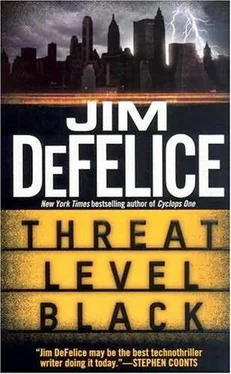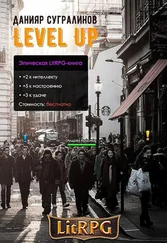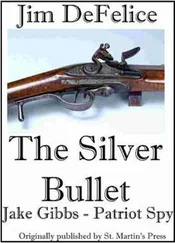“FBI?”
“Yeah.”
“J. Edgar Hoover?”
“His illegitimate son.”
Locks began turning. Fisher held his creds out as the door opened.
There was no need to. Brown was blind.
“You’re with the FBI?” asked the man, who was about sixty-five. He had an ebony face with short but full gray hair, and walked with a slight stoop.
Fisher glanced at his feet. He was wearing sneakers.
“I wanted to ask you about some shoes,” Fisher told Brown. “You have some dress shoes fixed a while ago?”
“Dress shoes? Me?”
“Mind if I come in?” said Fisher.
“Come along.”
The apartment had a mildew odor and the white walls had weathered gray. There wasn’t much furniture: a sofa and easy chair in the living room, a bed and wardrobe in the bedroom, table and chairs in the kitchen.
“What does the FBI want with shoes?”
“We’re very into heels,” said Fisher. “Mind if I look at yours?”
“Look away,” said Mr. Brown.
Fisher followed him to the closet. Mr. Brown’s dress shoes were worn at the heels and hadn’t been repaired since they’d been bought, let alone within the past six months. Fisher looked around the closet and under the bed without finding any other shoes-or sarin gas, or E-bombs, or anything except a little dust. He went with the man into the kitchen, telling him about the shoemaker but being purposely vague about what sort of case he was working on. Mr. Brown had lived in the Inwood area for more than thirty years, though he’d only had this apartment for about five. He had not been to Washington Heights in more than three decades, not since his friend Jimmy Fleming had died; they used to talk baseball and drink beer in Jimmy’s kitchen on St. Nicholas Avenue.
“Used to cheat,” said Brown. “I know he did. But he was a good sort otherwise, so I let him. And he was free with the beer.”
St. Nicholas was a block away from the apartment the three suspects had been in, but it was obviously just a coincidence.
But what about Brown’s name and address? Fisher’s theory was that the terrorists had used it as a way of passing along the address either of a drop or a meeting place. But if Brown had lived here for all that time, it couldn’t be either.
Just another coincidence, then?
That was the worst part of the grasping-at-straws stage: The straws inevitably came up short, bent, and twisted.
“Someone’s in the hall out there,” said Mr. Brown. He jerked his hand toward a door at the far end of the kitchen.
“Just my guys backing me up,” Fisher told him. “ Lot of people come down that hallway?”
“Nah. Door’s been stuck for a year.”
Fisher got up and looked at it. It had at least a dozen coats of white paint and several varieties of locks, including one keyed dead bolt about six feet from the ground.
Higher, he thought, than Mr. Brown could reach.
“Mind if I try it?” asked Fisher.
“Suit yourself.”
“You got the keys?”
“Don’t need keys from the inside.”
“When was the last time the apartment was painted?” Fisher asked.
“Oh, God, before I moved in. The landlord’s offered to spruce things up, but it’s fine with me.”
“Maybe you should try the door,” suggested Fisher.
Brown got up and went to it, opening all of the locks-except the dead bolt.
“See?” said Brown.
Macklin was unsympathetic when Fisher called him from the stakeout car.
“Let me get this straight,” said Macklin. “You want a warrant to search the apartment of a blind man because there’s a lock on the door he can’t reach?”
“Pretty much.”
“With nothing to link the blind man to the terrorists.”
“That’s right. He’s not involved.”
“You know, Fisher, I used to think you were a genius,” said Macklin. “Now I think you’re a crank.”
“Since when are those mutually exclusive?”
“You missed the phone conference. Kowalski was asking for you.”
“And?”
“DIA wants to close down the task force.”
“Why?”
“Because it’s finished.”
“You haven’t found out who bought the sarin gas or where they were going to use it, or how. You don’t have Faud. And then there’s the E-bomb.”
“The E-bomb was a red herring,” said Macklin. “Like your door lock. Look, we got a good bust on the sarin warehouse. We’re still interviewing those guys we picked up in Washington Heights -”
“Who don’t know anything,” said Fisher.
“Who claim they don’t know anything. Meanwhile, this Daud Faraghmeh-”
“Faud Daraghmeh.”
“Whatever. He’s gone. He hopped a plane out of Kennedy, I guarantee. He’ll turn up twelve months from now in some CIA report on Egypt.”
“ Yemen.”
“Whatever. Listen, in these days of budget cuts, we all have limited resources-”
“You been talking to Jack Hunter?” Fisher asked.
“As a matter of fact, he was in on the conference call, and he agreed that the task force is no longer necessary. We need to shift our resources around, especially with the President coming to town. The locals can take over the investigation and fill in the holes for the prosecutors. Hunter was mentioning a corruption case that he wanted you to-”
“We must be going through a tunnel,” said Fisher. “You’re breaking up.”
“I thought you were still with the surveillance team.”
“Can’t hear a word you’re saying.” Fisher hit the End button, then turned to Witt, who had a bemused expression on his face.
“Zone sergeant would dock your pay if you tried that as a uniformed trooper,” said the detective.
“Fortunately, Macklin’s not a sergeant,” said Fisher, “though he is often zoned. Let’s go get something to eat. Bag the surveillance.”
“Bag it completely?”
“Until Wednesday. That’s when his home aide comes to take him shopping.”
Alice didn’t look quite as beautiful as Howe remembered when he met her at the restaurant.
Somehow that made him feel even better about her. He took her hands and then leaned forward over the table to kiss her as she rose; she held back a moment before kissing him, her lips soft and wet with the wine she’d been sipping.
Howe ordered a beer, then began looking at the menu.
“How’s their spaghetti?” he asked.
“You’re having beer with spaghetti?” said Alice.
“That’s not good?”
“I’m sure it’s fine.”
“I’m not really a fancy guy,” said Howe. “I think that’s why I didn’t get all that excited about the house the other day. To me, you know, a house is just a house.”
“It’s more than that.”
“For some people, sure.” He saw by the look on her face that she’d taken that as an insult. He tried to change the subject by apologizing for the kidnapping.
“Well, you didn’t kidnap me,” she said.
“I’m sorry that you got involved, I mean…”
The waiter appeared with his beer, then took their orders. Alice chose a special; Howe stuck with the spaghetti.
“Can we start all over?” he asked as the waiter left.
“Why?”
“Because we’re kind of on the wrong foot here,” he said. “I mean, we’re different and-”
“Being different bothers you?”
“No,” he said, shaking his head. He took a sip of the beer.
This was all a mistake, he thought to himself. But he was stuck now, and she was stuck too. She tried making conversation and he tried not stumbling. Their salads came. Howe had never been very good at small talk but tried some now, asking about the difference between romaine and iceberg lettuce. She told him the leaves were different.
Читать дальше












